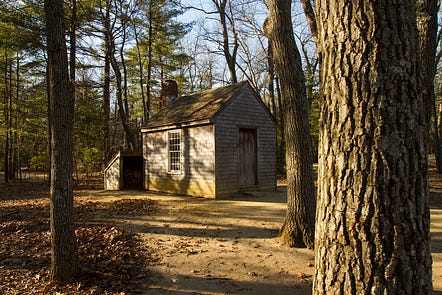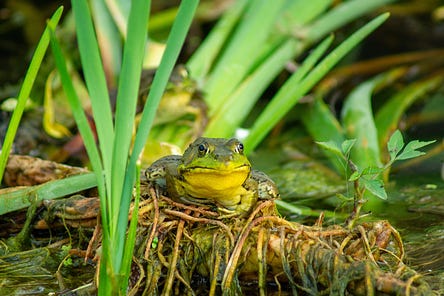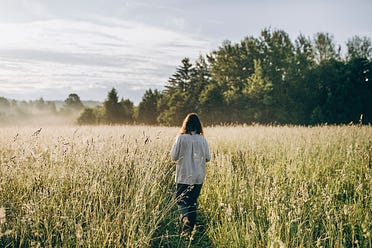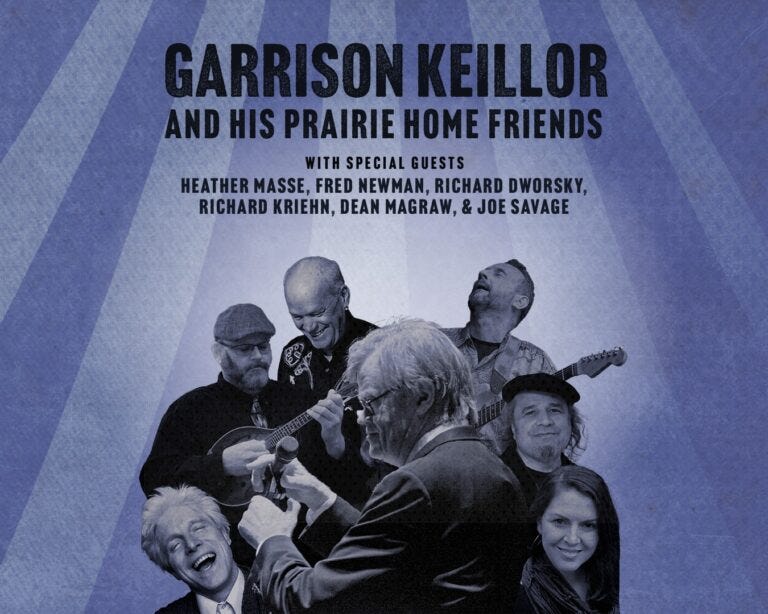|
I made a trip last week I’ve been meaning to take for decades and finally got to Concord, Mass., and found Sleepy Hollow Cemetery, which is vast — I’d hesitate to live in a town with so much mortality — and climbed the hill to Henry Thoreau’s grave marked with a stone the size of a pencil box that simply says “Henry” and thanked him for his work and also expressed my regret that he never got entangled in romance with a woman, which would’ve made his writing livelier, had there been a double bed in his cabin at Walden Pond and someone to disagree with him when he wrote, “The mass of men lead lives of quiet desperation.” The desperation could’ve been relieved by someone putting her hands on his shoulders and kissing the back of his neck.
In photographs, Thoreau is as ugly as a mud fence but that’s because he hated cameras. My grandma did too. She scowled when someone got out a Brownie and so her descendants who never met her think of her as severe, which she was not. She was a teacher, as Henry tried to be, and she had high expectations of people.
Thoreau’s great work wasn’t Walden but his daily journal in which he wrote about his walks in the woods and fields, what he saw, what he loved. Walden is blighted by a great deal of pontificating about solitude and independence. If there had been a Mrs. Thoreau, she’d have agreed with him on “Our life is frittered away by detail. Simplify, simplify.” And she would’ve scoffed at his nonsense — “If one advances confidently in the direction of his dreams, and endeavors to live the life which he has imagined, he will meet with a success unexpected in common hours.” He was chewing on the wrong weed when he came up with that, a line that has led people to waste years writing a bad novel who could’ve been happy bus drivers. Henry wouldn’t have said so much about the necessity of solitude with a woman looking over his shoulder.
The real man is in the journals, watching tall grass in an easterly wind rippling like waves on the sea; he loved grasses, the meadows and pastures, the metallic cry of the bobolink, and going down to the pond where he saw “singularly clean and handsome bullfrogs, with fine yellow throats sharply separated from their pickle-green heads by their firmly shut mouths, and with beautiful eyes.” He stood in a rainstorm and watched the torrent running in the gutters, he studied minnows and butterflies, and he isn’t telling us how to live our lives, just pointing out what fascinates and moves him. He sees skunk cabbage dying in October and sees among the dead leaves some fresh buds of eventual cabbage, the great circle of life complete, the prospect of resurrection.
And now he lies in his narrow bed, under the tablet with his name, forever on a first-name basis with his visitors, surrounded by his relations, the successful authors nearby under the oak trees, Nathaniel Hawthorne and Louisa May Alcott, and Henry’s boss Ralph Waldo Emerson under a gigantic boulder, and as I stood at his feet and wished a luckier life for him, I felt a wet snout shoved into my right hand and a bundle of fur push against my leg and a man said, “Elsa, no” and here was an enormous black dog, the man holding the leash. I scratched her ears and neck and she was very polite, simply anxious for affirmation. He said she was a Burmese mountain dog. “Summer is hard for her, she gets hot,” he said. “She loves winter. She’ll lie outdoors sleeping in a blizzard. We’re on our way to her favorite creek. It’s her spa.”
For a moment I thought maybe Henry should’ve had a dog to keep him company but a dog would’ve spooked the wildlife he wanted to see, so what’s the point. Loneliness is an asset. He tramped the fields around Concord and wrote it all down for his closest friend, the invisible reader — as St. Emily wrote, “To comprehend a nectar requires sorest need” and with his journals, the reader feels needed, the good man is conducting a tour and without you there listening to him, it wouldn’t make sense. So look him up sometime. He’s still quite lively on the page. And if you despair, don’t broadcast it, keep it quiet, and do as Henry did and go for a walk and look at the grass and the birds and be happier.
Garrison Keillor is performing in towns around the East Coast this summer, plus one in Bayfield, Wisconsin, in August. CLICK HERE for tickets!
You’re on the free list for Garrison Keillor and Friendsnewsletter and Garrison Keillor’s Podcast. For the full experience, become a paying subscriberand receive The Back Room Newsletter which includes monologues, photos, archived articles, videos and much more including a discount to our store on the website.





